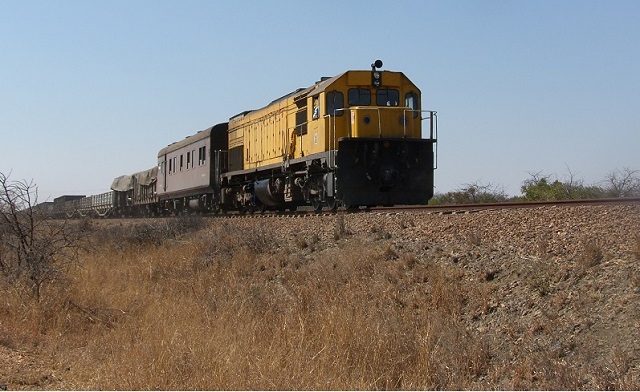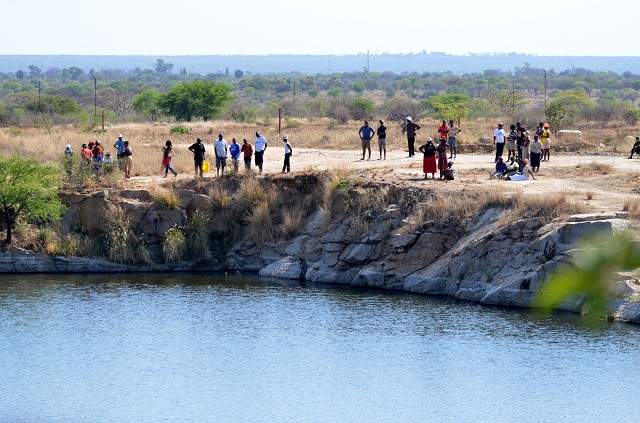EDITORIAL COMMENT: Cabinet approval for NRZ consortium deal timely

WE welcome Cabinet’s approval of the $400 million National Railways of Zimbabwe deal with a consortium led by the Diaspora Infrastructure Development Group (DIDG) and South Africa’s Transnet, a development which will lead to the last leg of negotiations before the agreement takes off. The deal, whose consummation was being threatened by questions over the competence of Transnet to ably invest in the project, was thrown back on track after Cabinet gave a nod to the proposed tie-up during its Monday meeting in Harare.
Transport and Infrastructure Development Minister Dr Joram Gumbo confirmed the new development on Monday night. “Yes, I can confirm that Cabinet has agreed to the investment (by DIDG/Transnet). We will soon be meeting with the investor to tie up the nitty-gritties,” said Dr Gumbo.
“I am very happy about this development because the investors have a lot of resources they want to pour into the project to make it successful, and this includes reviving NRZ’s passenger and freight business. So, after concluding the negotiations, the first phase will begin in earnest,” he said.
DIDG/Transnet was recently announced as the preferred investor out of 85 companies that were interested in investing in the country’s sole rail company.
South African banks — Standard Bank, Nedbank, Rand Merchant Bank (RMB) — and the Industrial Development Corporation (SA) have put up funding letters worth $1,2 billion for the project, of which $400 million is earmarked for initial investment in capital expenditure. But the deal seemed to have run into some hurdles recently after questions were raised over the competence of Transnet to ably invest in the project.
However, it later emerged that much of the details and clarifications sought had in fact been submitted and evaluated during a process that involved the State Procurement Board (SPB), the Office of the President and Cabinet, Sera (State Enterprises Restructuring Agency), the Ministry of Finance and Economic Development and the Ministry of Transport and Infrastructure Development, among other Government agencies and departments.
DIDG/Transnet emerged as a winning bidder from five other companies — China Civil Engineering Construction Corporation; Crowe Howath Welsa; Croyeaux (Pvt) Limited; Sinohydro Corporation Limited; Smh Rail Sdn Malaysia — that had been shortlisted for the deal. In the initial stages, 82 companies submitted bids for the parastatal.
Essentially, the DIDG/Transnet has an ambitious three-year strategy that is premised on buying new locomotive and wagons and revamping operational efficiencies. From the $400 million capital expenditure, $150 million will be earmarked for 24 mainline locomotives and 13 rail shunters or shunting locomotives. Twenty locomotives that are part of the current fleet are expected to be refurbished.
Similarly, NRZ plans to acquire 1000 new wagons and refurbish 700 that it presently has. It is also envisaged that more than $100 million will be invested in modernising and refurbishing the State enterprise’s train control and signalling system. We are glad that the deal is back on track and hope that the final leg of negotiations with the Johannesburg-headquartered Transnet will proceed smoothly, allowing for the agreement to be implemented without further delay.
Since due diligence on the suitability of the DIDG/Transnet consortium appears to have done meticulously, we anticipate no further handicaps to the operationalisation of the deal which is of vital importance to the nation. Transnet is a state-owned enterprise that has interests in rail, ports and pipelines in South Africa and we expect them to bring their wealth of experience to the NRZ and assist the company to turnaround its fortunes.
The revival of the NRZ is a critical component of the Infrastructure and Utilities Cluster of the country’s economic blueprint – Zim-Asset – and we are happy that Government is prioritising this vital sector of the economy. A fully functional rail network is an important economic enabler as it allows for transportation of commercial freight and passengers both within the country’s borders and between Zimbabwe and its neighbours – particularly its biggest trading partner South Africa.
The country’s road network has suffered from increased vehicular traffic, specifically heavy haulage trucks, which have contributed to its dilapidated state.
An efficient and well run railway system will relieve pressure on the country’s trunk road network while bringing Zimbabwe at par with its neighbours and increasing trade.
It will also improve the operational efficiency of critical companies such as Hwange Colliery and the soon to be revived Ziscosteel. The resuscitation of the passenger train service will lead to affordable travel between major cities. The importance of the NRZ to the nation cannot be overemphasised and we hope authorities will be alive to this fact when they engage in the final laps of negotiations for the deal. Bulawayo, as the seat of the NRZ headquarters, also stands to benefit immensely from the deal which will see the company restore its status as the biggest employer in the city.










Comments